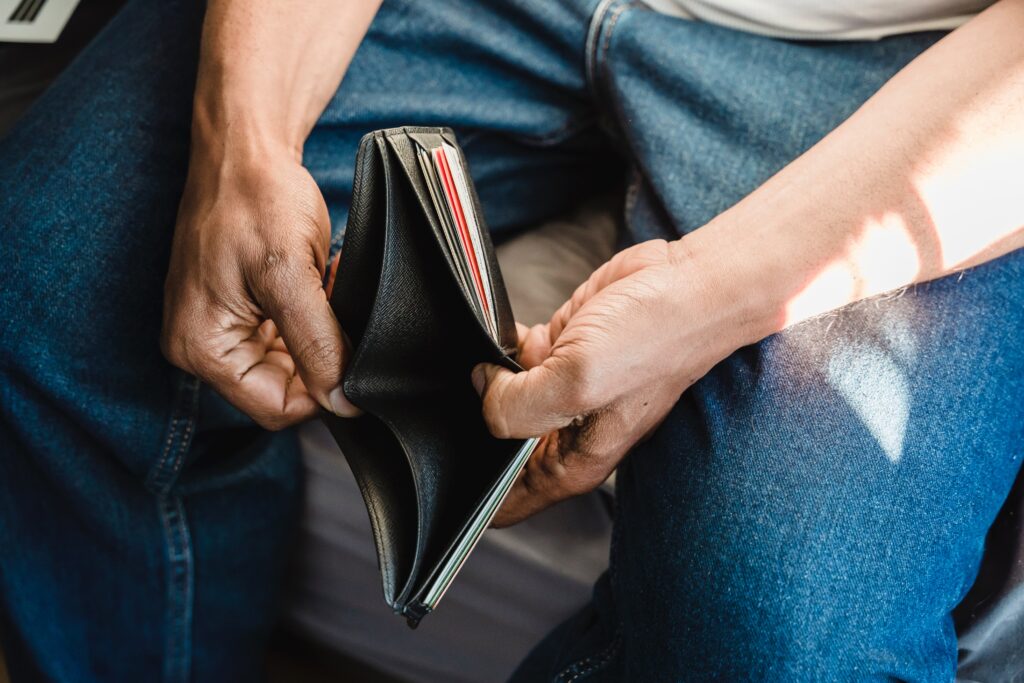
Why Do I Feel Broke?
We’ve all been there. That moment when you check your bank account and wonder, “Where did all my money go? Why do I always feel broke?” Surprisingly, this feeling isn’t exclusive to low-income earners. No matter how much money you make, certain habits and factors can leave you feeling like you’re constantly struggling to make ends meet. The good news is that by addressing these issues, you can take control of your financial situation and bid farewell to feeling broke. Buckle up, folks! We’re about to dive into nine reasons why you might feel broke and how to fix them.
1. Spending More Than You Make: The Classic Money Trap
It’s the age-old financial pitfall: spending more than you make. This can happen at any income level, leaving you feeling perpetually broke. How can you escape this vicious cycle?
- Create a budget: Track your expenses and set spending limits for different categories.
- Find ways to increase income: Look for side gigs or negotiate a raise at work.
- Cut unnecessary expenses: Review your spending and identify areas where you can save.
2. High-Interest Debt: The Silent Wealth Killer
Credit card debt can sneak up on you, and before you know it, you’re drowning in high-interest payments. This can make you feel broke and desperate for relief. What’s the solution?
- Pay off high-interest debt first: Focus on reducing the balances with the highest interest rates.
- Seek help from a financial advisor: Get professional guidance to develop a debt repayment plan.
3. Inflation: The Invisible Money Muncher
Inflation erodes your purchasing power, making everything more expensive while your wages remain stagnant. This can contribute to the feeling of being broke. How can you fight back?
- Find ways to increase income: Seek promotions, side hustles, or additional job opportunities.
- Cut expenses: Look for areas where you can reduce spending without sacrificing quality of life.
4. Large Monthly Expenses: The Heavy Burden
Rent, mortgage payments, transportation costs – these hefty expenses can leave you feeling financially insecure. So, how can you lighten the load?
- Reduce expenses: Shop around for better deals or negotiate with your service providers.
- Consider alternative living arrangements: Downsize, find a roommate, or relocate to a more affordable area.
5. Lack of Emergency Savings: The Unexpected Crisis
Unexpected expenses like medical bills or car repairs can leave you feeling broke and stressed. How can you prepare for these financial surprises?
- Build an emergency fund: Aim to save three to six months’ worth of living expenses.
- Seek out financial assistance programs: Look for government or non-profit resources that offer help in times of need.
6. Trying to Keep Up with the Joneses: The Social Pressure
The desire to fit in or keep up with others can lead to overspending and financial struggles. How can you resist this costly temptation?
- Learn to delay gratification: Practice patience and prioritize long-term financial goals over short-term desires.
- Find alternative ways to build social connections: Focus on shared experiences and meaningful relationships instead of material possessions.
7. Lack of Financial Organization: The Chaos Factor
Feeling out of control and disorganized can contribute to financial insecurity. How can you regain control and restore order?
- Create a budget: Use financial planning tools or apps to help you track your income and expenses.
- Organize your financial documents: Keep important records and receipts in a safe and easily accessible location.
8. Engaging in Get-Rich-Quick Schemes: The False Promises
The allure of getting rich quickly can lead to financial losses and exacerbate feelings of being broke. How can you avoid falling for these too-good-to-be-true opportunities?
- Focus on building long-term wealth: Invest in proven strategies like saving and investing in diversified portfolios.
- Educate yourself: Learn about personal finance and avoid scams by being informed and skeptical of unrealistic claims.
9. Bad Partnerships: The Toxic Money Drain
Incompatible financial habits or partners can contribute to feeling financially insecure or even bankrupt. How can you protect yourself from these damaging relationships?
- Seek financial counseling: Work with a financial advisor to create a plan for shared expenses and goals.
- End toxic relationships: If a partner is unwilling to change or compromise, consider ending the relationship to preserve your financial well-being.
Don’t Feel Broke: Finding Your Financial Freedom
Feeling broke is a common, but not insurmountable, challenge. By addressing the habits and factors that contribute to financial struggles, you can pave the way to long-term financial security and stability. Remember, small changes can make a big difference, and you’re not alone in this journey. So take a deep breath, roll up your sleeves, and start tackling these issues one step at a time. With determination and perseverance, you’ll soon leave the “broke” feeling behind and embrace a future filled with financial confidence.